Just two years ago, Arkansas State University first began to experiment with the iPad in the classroom. Now this fall, in a major shift for the school and a boon for Apple's tablet, all incoming students will be required to have one.
Arkansas State first considered using the iPad when its teaching program outgrew the school's existing Mac lab, where student teachers were learning to integrate technology into their instruction. Dr. Gina Hogue, Ph.D., spoke with AppleInsider about ASU's adoption of the iPad, and how the university hopes to improve its education by requiring all students to have one.
Starting in this year's fall semester, all members of the incoming first-year class for Arkansas State will either have an iPad upon arriving on campus or will be required to procure one shortly thereafter. The requirement is part of the university's iPad Initiative, the motto for which is "Learn on the move."
Hogue, the university's Associate Vice Chancellor for Academic Services, said the initiative has its roots in Arkansas State's Teaching Methods course. Instructors would send student teachers out into the field equipped with an iPad, allowing administrators greater freedom in monitoring teachers' progress. "We can use it for far more than teaching," Dr. Gina Hogue said of Apple's iPad.
"We'd introduce our student teachers to the iPad in the Teaching Methods course, letting them get used to it," she explained. "Then, the next semester, they'd use the iPad during their teaching internship. We can use it for far more than teaching. It was an opportunity for us to use it to monitor students using FaceTime."
The iPad's videoconferencing capabilities allow for remote observation and more immediate feedback than was previously possible, according to Hogue.
"Our service area extends two hours away from campus," she said, "so this allows us to observe them more often and to preserve a closer connection with teachers who are remote from our schools."
Hogue sayid students have been eager to integrate Apple's tablet into their studies. "Our students love the iPad," she said.
That level of student support led ASU to look into bringing the iPad into other educational areas, resulting in the iPad requirement for next year's freshmen. University administrators are excited about the possibilities made possible by making the iPad a required feature of the first-year experience.
"We think it's going to bring a whole new level of experience for [the freshman class] as far as keeping everything organized and available to them," Jill Simons, Executive Director at Arkansas State, told AppleInsider. "By having the iPad standard with our first years, it's allowed us to start another project that we wanted to get going: having a common reader for the first year class.""Their very first course will be getting them to engage from the get-go in the college experience with an iPad," said Jill Simons, Arkansas State's executive director.
Next year's freshmen, upon arriving on campus, will be able to download an ASU-developed iBook as part of a required course, "Making Connections." A "first-year experience course," Making Connections will be aimed at teaching students how to use the iPad in a learning environment. It's designed to help transition high school students into college-level learners.
"In essence, our first-year population starting this fall will come with an iPad in hand," Simons said. "Their very first course will be getting them to engage from the get-go in the college experience with an iPad."
ASU makes iPads available through the university's IT store. Students have the option of purchasing an iPad or iPad mini, or they can rent one through the university. But many students don't even need to go through the school to be prepared, according to Simons.
"Students are bringing the iPad with them," she said. "We surveyed and found out that many of them already have one."
ASU is one among many primary, secondary, and post-secondary educational organizations to integrate the iPad. Schools on all levels are increasingly turning to iPads over PCs, with Apple selling three million units to U.S. K-12 schools in the past year.
At the college level, every semester seems to bring word of some institution or other seeing success integrating the Apple's tablet. Most recently, the University of California Irvine revealed that its iMedEd Initiative — in which students follow an iPad-based medical school curriculum — resulted in "an average of 23 percent higher" scores on their national exams, despite students having similar incoming GPAs and MCAT scores.
Back in Jonesboro, ASU administrators are finding that instructors are excited to bring the iPad into the classroom and are coming up with innovative uses for the device.
"The director of the art education program," said Hogue, "she used iPads in her classes to engage her art education students with students in preschool environments and elderly people in assisted living communities. The students worked with those two groups in order to create and share art in a cross-generational manner."
Hogue went on to describe educators finding uses for the iPad in math courses, where students were running graphing programs on it. In geography classes, students use the device to research and view content on countries they're learning about. In campus libraries, librarians are beginning to carry iPads with them, negating the need to return to a reference desk in order to provide visitors with more information.
A look at the iPad Initiative's Submitted Proposals page shows more projects in the works from other areas of academia. Instructors are looking to measure the device's impact on note-taking, news writing, geometry, cooperative learning, and more.
Simons seems certain of beneficial effects from bringing the iPad more formally into ASU's learning environment. ASU, she said, is pretty much already convinced, and this coming year's Initiative isn't just the university sticking its toe in the water."Our older students are a bit jealous. The ones that are on campus are wondering why we didn't start this program during their first year," Simons said.
"I believe the impact is two-fold, meaning in some ways we're meeting students where they're at," she said. "Students are already coming in with smart devices, and they're used to learning where they're at. The second part is: I think we're taking it into the future. In the classroom, instead of listening to a lecture, students are engaging with the material. It's hands-on. It's touching. We're taking it so much further than we have in the past.
"I think the main thing is that this is a chance for us to revisit how we're doing things on campus. This is an exciting time for all involved. Our older students are a bit jealous. The ones that are on campus are wondering why we didn't start this program during their first year."
 Kevin Bostic
Kevin Bostic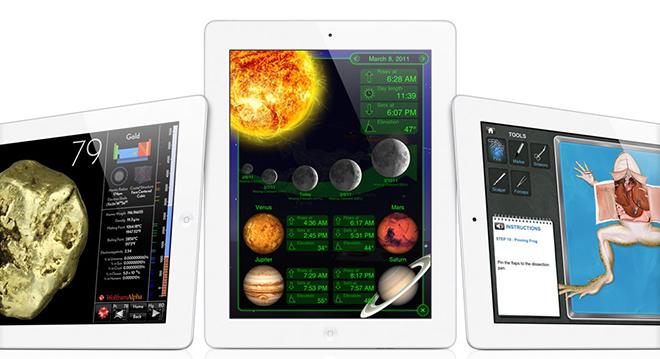
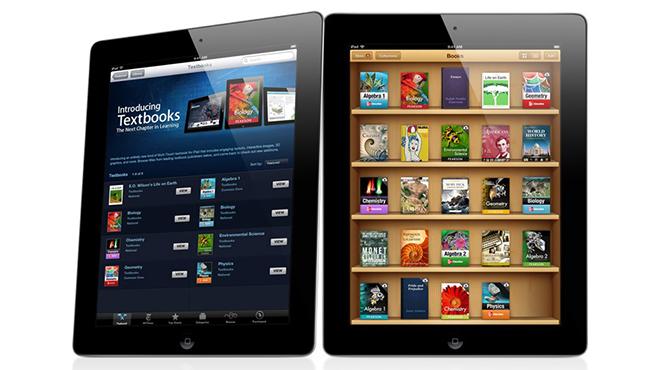
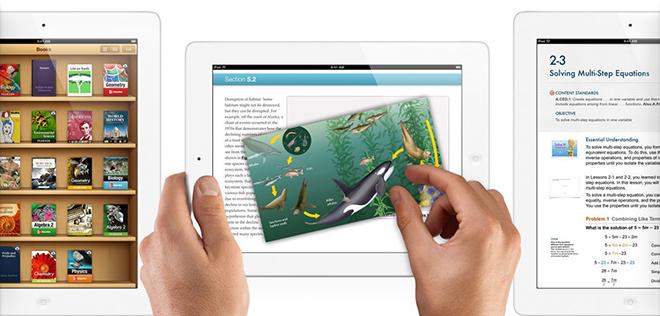
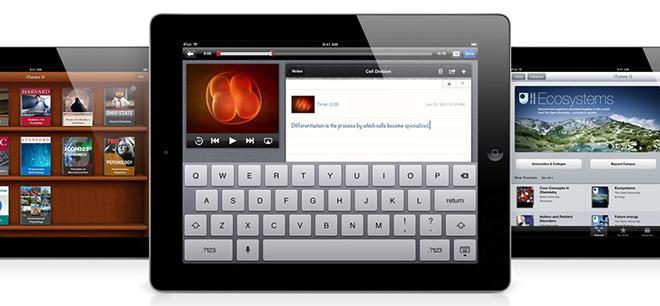







-m.jpg)






 William Gallagher
William Gallagher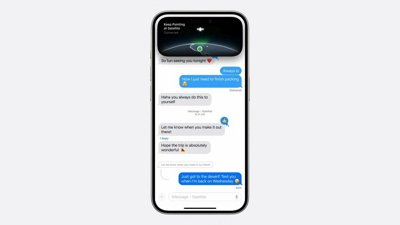
 Malcolm Owen
Malcolm Owen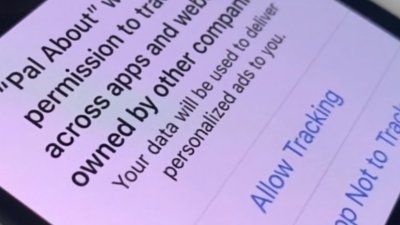

 Brian Patterson
Brian Patterson
 Charles Martin
Charles Martin










120 Comments
Not surprising this is happening especially considering the success of iTunes U.
Apple to go bankrupt given that people want its products and no one wants its competitors'.
Among the new students, there has to be at least a couple of Apple haters or Fandroids, and I find it pretty funny that these people will now be forced to use an iPad, they have no choice.
Just yesterday I was reading a thread on Anandtech about a Note II user who was complaining about input lag on their brand new device. The first responses were all of these Fandroids jumping on him, claiming that there was no lag at all on their devices, and they don't notice anything. These people must be completely blind and possibly drunk or under the influence of some heavier narcotics, because healthy people with good senses can definitely notice the difference between a lag of say 10 ms VS 100 ms.
Later on in the thread, the Fandroids changed their story, and all of a sudden, the lag was now a feature. You see, it was built into Android intentionally. Yep, that sounds highly likely.
Don't most colleges require students to have a computer? So at Arkansas they probably have to have a computer and an iPad. I can't imagine that they can complete a college curriculum without a computer. Who knows, perhaps they can get by with only their iPad, except the Computer Science majors of course.
Who knows, perhaps they can get by with only their iPad, except the Computer Science majors of course.
All we need is a C++ or Python compiler that works on the iPad and they'll be good to go.